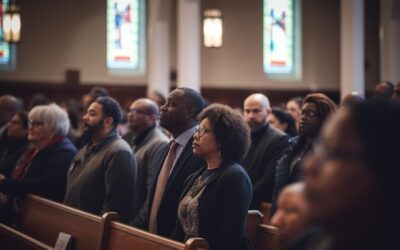What Do Adventists Offer for Young Adults?
In recent years, the age group often classified as “young adults” has been trickier to engage. It’s been a significant concern for Christian churches around the world. Though interestingly enough, similar observations regarding young adults have been coming up in conversations about the economy, the entertainment industry, politics, and more.
We could discuss the likely causes for this disengagement until we’re blue in the face. But most research agrees that these young people, aged 18-35, often report feeling lonely, misunderstood, and/or frustrated with the status quo. They also long for community and acceptance.1
That’s why the Seventh-day Adventist Church makes it a priority to understand and cater to the unique needs of today’s young adults in the volatile, digitally-focused, social-media-saturated society we live in.
Generational differences are inevitable, so our methods will be ever-adapting. But here’s a look into what the Adventist Church does to help young adults have a place to belong and a place to serve with their gifts.
We’ll go over:
- What are young adult ministries
- The history of young adult ministries
- Benefits of young adult ministries
- How to find young adult church groups or programming
Let’s get started.
What are young adult ministries?

Photo by Gift Habeshaw on Unsplash
As of recently, young adult ministries focus on the age group and stage of life that begins in the later years of college, or as a young person is becoming independent. This usually ends up covering the ages of 21-30.2
The official mission of young adult ministry in the Adventist Church is:
“The engagement and salvation of young adults through Jesus Christ. We understand this ministry to be that work of the church that is conducted for, with, and by young people.”3
One way the Adventist church nurtures engagement of young adults is through ministry on college and university campuses around the world. Public Campus Ministry, or PCM, offers Bible studies, small group support, mentorship, events, activities, and other resources to students who have spiritual questions or are looking for a spiritual community.
But young adult ministry also extends beyond educational campuses, of course. There are official resources and programming available from the General Conference,4 or the World Headquarters of the Seventh-day Adventist Church, but most young adult ministry options are organized and operated on the local level, because the size and needs of this age group can vary so much depending on location and community type.
At individual church locations, you might find:
- Young adult Sabbath school groups
- Young adult Bible study groups
- Interest-based activity groups (biking, hiking, board games, book clubs, etc.)
- Hobby-based activities (drawing, knitting, or cooking)
- Community service projects (food donations, distributing Christian literature, homeless feeding, Habitat for Humanity, etc.)
- Stage-of-life activities or events (parenting groups or classes, marriage encounter events, financial planning seminars, etc.)
- Mission trips
Overall, these programs help young people grow spiritually as they befriend and serve others.
How young adult ministry started in the Adventist Church
The first young adult ministry was created in 1879, when two teenagers formed the Adventist Youth Society.6 Henry Fenner and Luther Warren saw the need for a community of believers to uplift and guide each other to Christ.7 This group ministered to both Adventists and non-Adventists—joining them together in Bible study, worship, and fun activities.8
In 1907, the Adventist Church formally created a ministry called, “Young People’s Society of Missionary Volunteers.”9 But by 1979, this name was shortened to “Adventist Youth.”10
Today, however, the phrase “Adventist Youth” refers to ministries for high school-aged kids. Whereas the ministry for 20-35-year-olds is now called Young Adults, or YA—a category that is relatively new not just in the church realm, but in society as well.11
But you still might find some longer-running young adult programs to still use the term “youth” to refer to any ministry for people 35 and younger.
The Adventist Church uses the young adult ministry program to:
- Encourage young adults to strengthen their relationship with Christ as they establish their independence
- Empower them to be leaders or difference-makers among their peers (and the church as a whole)
This ministry has involved youth leadership training from the very beginning. The Bible reaffirms that the youth shouldn’t be underestimated (1 Timothy 4:12).
In fact, many of Adventism’s early founders started God’s work in their late teens and twenties.12
History has proved that when it comes to serving God, age isn’t an issue!
Benefits of young adult ministries

Young adult ministry programs can help strengthen people’s relationships with Jesus as well as with others. It can also provide support and community during a time of life when you’re just beginning to establish your household, your career, your family, or even your identity as you consider your place in today’s world.
These ministries seek to do that by:
- Helping develop a Christian character
- Teaching how to witness and serve, as life presents more opportunities than when you were younger
- Helping maintain a Christ-centered life (prioritizing responsibility to Christ over worldly responsibilities)
- Establishing a Christian community focused on belonging, support, and encouraging one another
Because if anyone needs a tight-knit community of fellow believers, it’s young adults.
On top of solidifying their professional identity, young adults are at the stage where they start to assess the effectiveness of their upbringing, especially when it comes to their beliefs. For the first time in their lives, they may be left to make significant life decisions on their own. And one of the most critical decisions is deciding whether to join a church or not.
They’re trying to ask themselves why they believe what they do—or why they attend church. Those born into the church often begin with what’s referred to as “adolescent faith.”13 They are used to accepting the teachings of their parents and authority figures without much question.
But there comes a time when young adults must choose to do those things because they have internalized their beliefs—not because they’re being told to.
And as young adults start to evaluate their beliefs, they look for a support system. They’re looking for people to gently guide them to the truth. They’re looking for peers to connect to.
But sometimes, well-intentioned churches get caught up in preaching doctrine while neglecting fellowship and friendship.
Questioning one’s long-held beliefs can be a frightening experience. So young adult ministry aims to provide a welcoming environment where young people can navigate life’s questions with Bible principles. Their mission is to provide young adults with authenticity, belonging, compassion, and discipleship.14
How to get involved in local groups
If you’re a young adult and looking for something that could be helpful for you at this stage of life, you can first start by looking up the nearest Seventh-day Adventist Church. Their website or social media page is likely to have information about their different Bible study groups and ministries.
What are young adult ministries?
 As of recently, young adult ministries focus on the age group and stage of life that begins in the later years of college, or as a young person is becoming independent. This usually ends up covering the ages of 21-30.2
As of recently, young adult ministries focus on the age group and stage of life that begins in the later years of college, or as a young person is becoming independent. This usually ends up covering the ages of 21-30.2
The official mission of young adult ministry in the Adventist Church is:
“The engagement and salvation of young adults through Jesus Christ. We understand this ministry to be that work of the church that is conducted for, with, and by young people.”3
One way the Adventist church nurtures engagement of young adults is through ministry on college and university campuses around the world. Public Campus Ministry, or PCM, offers Bible studies, small group support, mentorship, events, activities, and other resources to students who have spiritual questions or are looking for a spiritual community.
But young adult ministry also extends beyond educational campuses, of course. There are official resources and programming available from the General Conference,4 or the World Headquarters of the Seventh-day Adventist Church, but most young adult ministry options are organized and operated on the local level, because the size and needs of this age group can vary so much depending on location and community type.
At individual church locations, you might find:
- Young adult Sabbath school groups
- Young adult Bible study groups
- Interest-based activity groups (biking, hiking, board games, book clubs, etc.)
- Hobby-based activities (drawing, knitting, or cooking)
- Community service projects (food donations, distributing Christian literature, homeless feeding, Habitat for Humanity, etc.)
- Stage-of-life activities or events (parenting groups or classes, marriage encounter events, financial planning seminars, etc.)
- Mission trips
Overall, these programs help young people grow spiritually as they befriend and serve others.
How young adult ministry started in the Adventist Church
The first young adult ministry was created in 1879, when two teenagers formed the Adventist Youth Society.6 Henry Fenner and Luther Warren saw the need for a community of believers to uplift and guide each other to Christ.7 This group ministered to both Adventists and non-Adventists—joining them together in Bible study, worship, and fun activities.8
In 1907, the Adventist Church formally created a ministry called, “Young People’s Society of Missionary Volunteers.”9 But by 1979, this name was shortened to “Adventist Youth.”10
Today, however, the phrase “Adventist Youth” refers to ministries for high school-aged kids. Whereas the ministry for 20-35-year-olds is now called Young Adults, or YA—a category that is relatively new not just in the church realm, but in society as well.11
But you still might find some longer-running young adult programs to still use the term “youth” to refer to any ministry for people 35 and younger.
The Adventist Church uses the young adult ministry program to:
- Encourage young adults to strengthen their relationship with Christ as they establish their independence
- Empower them to be leaders or difference-makers among their peers (and the church as a whole)
This ministry has involved youth leadership training from the very beginning. The Bible reaffirms that the youth shouldn’t be underestimated (1 Timothy 4:12).
In fact, many of Adventism’s early founders started God’s work in their late teens and twenties.12
History has proved that when it comes to serving God, age isn’t an issue!
Benefits of young adult ministries

Young adult ministry programs can help strengthen people’s relationships with Jesus as well as with others. It can also provide support and community during a time of life when you’re just beginning to establish your household, your career, your family, or even your identity as you consider your place in today’s world.
These ministries seek to do that by:
- Helping develop a Christian character
- Teaching how to witness and serve, as life presents more opportunities than when you were younger
- Helping maintain a Christ-centered life (prioritizing responsibility to Christ over worldly responsibilities)
- Establishing a Christian community focused on belonging, support, and encouraging one another
Because if anyone needs a tight-knit community of fellow believers, it’s young adults.
On top of solidifying their professional identity, young adults are at the stage where they start to assess the effectiveness of their upbringing, especially when it comes to their beliefs. For the first time in their lives, they may be left to make significant life decisions on their own. And one of the most critical decisions is deciding whether to join a church or not.
They’re trying to ask themselves why they believe what they do—or why they attend church. Those born into the church often begin with what’s referred to as “adolescent faith.”13 They are used to accepting the teachings of their parents and authority figures without much question.
But there comes a time when young adults must choose to do those things because they have internalized their beliefs—not because they’re being told to.
And as young adults start to evaluate their beliefs, they look for a support system. They’re looking for people to gently guide them to the truth. They’re looking for peers to connect to.
But sometimes, well-intentioned churches get caught up in preaching doctrine while neglecting fellowship and friendship.
Questioning one’s long-held beliefs can be a frightening experience. So young adult ministry aims to provide a welcoming environment where young people can navigate life’s questions with Bible principles. Their mission is to provide young adults with authenticity, belonging, compassion, and discipleship.14
How to get involved in local groups
If you’re a young adult and looking for something that could be helpful for you at this stage of life, you can first start by looking up the nearest Seventh-day Adventist Church. Their website or social media page is likely to have information about their different Bible study groups and ministries.
If nothing else, joining a group can give you the chance to meet other people interested in serving God and making the most of their lives. It’ll give you a chance to connect with people who face the same challenges as you. (Not to mention it can also be a great place for fun activities and good food…)
And if you’re the kind of person who has a passion for serving young people, you could get involved, too! Get started by deciding what your passion for service or ministry is. You can serve multiple ministries, of course, but it helps to narrow it down. And it’ll help your search be more specific.
But the most important thing you can do is get started. Make the first step, and pray that God will help you take it from there. He can lead you to a group or a ministry that best fits your needs and aspirations.
Find more information and resources about young adult ministries and programming:
- Worldwide Young Adults ministry for Adventists
- Keep up with the US Adventist Youth & Young Adult Facebook page
- Adventist Youth ministries in multiple divisions of the worldwide church:
– North American Division
– Inter-American Division
– South American Division
– East-Central Africa Division
– West-Central African Division
– Southern African-Indian Division
– Inter-European Division
– Trans-European Division
– Northern Asia-Pacific Division
– South Pacific Division
– A quick-start guide for young adult ministry initiatives
– Adventist Young Professionals network
Related Articles
- Earls, Aaron, “8 Reasons Young Adults Leave Your Church (and 8 Reasons They Stay)”. [↵]
- https://www.gcyouthministries.org/. [↵]
- https://www.gcyouthministries.org/ministries/young-adults/mission-aim-motto-and-pledge/. [↵]
- https://www.gcyouthministries.org/ministries/young-adults/. [↵]
- Seventh-Day Adventist Pastor’s and Elder’s Handbook for Youth Ministry, page 10 (The General Conference of Seventh-day Adventists, 2002). [↵]
- Ibid. [↵]
- Ibid. [↵]
- Ibid. [↵]
- Ibid. [↵]
- “Young Adults.” [↵]
- “Youth” in adventist.org, Seventh-day Adventist World Church, Accessed July 26, 2022. [↵]
- Russell, Gary, in Ministry Magazine: “Young adult ministry: let the baby-sitting cease”. [↵]
- Institute of Church Ministry: “Loving and Leaving: SDA Youth Attitudes and Behavior to the church”. [↵]
More Answers
What Is ASI (Adventist-Laymen’s Services and Industries)?
ASI, which stands for Adventist-laymen’s Services and Industries, is a membership-based organization that provides support for Seventh-day Adventist laypeople (Adventist professionals who aren’t pastors).
Sola Scriptura—What Does It Mean, and Why Is It So Important?
Sola scriptura is a term that originated during the Protestant Reformation. It represents the way many Christians view the Bible and its authority.
What is the Concept of “Present Truth” and Why is it Important?
Present truth is the principle that certain biblical truths are relevant to God’s people at specific times in history. God sends the Holy Spirit to reveal truths that help us better understand how to interpret and apply His Word in a present moment.
What Does the Bible Say About Modesty
The Bible teaches that modesty, a form of humility and respect, is a valuable quality in everyone—men, women and children. It has to do with how we present ourselves, which should exemplify our inner relationship with God.
13th Sabbath Offering: What It Is and Why It Matters
On the last Sabbath of every quarter, Adventist churches participate in the 13th Sabbath offering—a special offering that goes to mission fields around the world.
Adventist Movies: Where Faith and Film Meet
The Seventh-day Adventist Church’s mission from the beginning has been to share God’s truth in the Bible. And as times have changed, we’ve explored new ways of doing this—one of those being movies.
Everything You Need to Know About an Adventist Church Potluck
Every so often, usually on a schedule ranging from once a week to once a month to once a quarter, an Adventist church will have “fellowship dinners,” often casually referred to as potlucks.
How to Join the Seventh-day Adventist Church
Whether you heard about the Seventh-day Adventist Church through a traveling evangelist, during your online searches, or through a loved one or relative, you might be considering joining yourself.
How Do Adventists Make Movie and Music Choices?
We have entertainment at our fingertips. With just a tap on our smartphones, we can access all the latest movies, music, YouTube videos, and more.
Do Adventists Celebrate Birthdays?
Yes, most Seventh-day Adventists do celebrate birthdays because we see them as excellent reminders of the life God has blessed us with. And we celebrate them the same way everyone else does—with friends, family, presents, and a special meal.
Are Seventh-day Adventists Christians?
Yes, the Seventh-day Adventist Church is a Protestant Christian denomination formed in 1863. Just like other Christians, we believe that Jesus Christ is our Savior and seek to follow the principles of the Word of God.
Do Seventh-day Adventists Believe in the Secret Rapture
The secret rapture belief asserts that the followers of Jesus will be suddenly and stealthily “raptured” from earth and taken to heaven. Then, any people left on earth will face a period of great difficulty—before Christ’s second coming actually happens.
The Seventh-day Adventist Hymnal
The Seventh-day Adventist Hymnal is a songbook used worldwide by many Adventist congregations during their worship services. Since its publication in 1985, it has helped foster praise to God while reminding church members of our mission and drawing them closer to Jesus.
Do Adventists Have Their Own Bible?
Adventists have some unique beliefs—you might be able to name some of them right now. The seventh-day Sabbath. Death as a sleep. Hell as nonexistence.
Do Adventists Celebrate Communion and Foot Washing?
Like many Christian denominations, Adventists regularly participate in communion, also referred to as the “Lord’s Supper” or the “Last Supper.” They also practice foot washing (John 13:1-20), or the “ordinance of humility,” during the service—which isn’t as common.
How do Adventists choose what to eat?
Every day, parents go through the ritual of getting their kids to eat what is healthy and good while trying to steer them away from what can hinder the growth of their developing bodies. Nutritionists work with their clients to make better food choices.
What Are Seventh-Day Adventist Sermons Like?
In nearly every Seventh-day Adventist Church, the sermon is the focal point of the main service—similar to many Protestant Christian denominations. It is a time of biblical instruction by the pastor, who shares what they’ve been studying in the Bible and preparing over the previous week.
Didn’t find your answer? Ask us!
We understand your concern of having questions but not knowing who to ask—we’ve felt it ourselves. When you’re ready to learn more about Adventists, send us a question! We know a thing or two about Adventists.



















